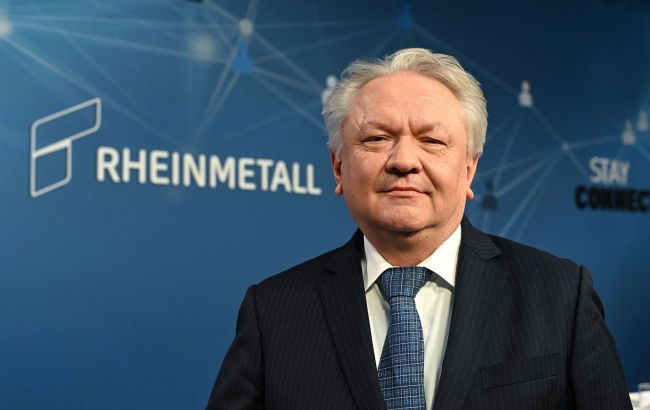Rheinmetall CEO proposes to create Israel's Iron Dome analog for Europe
 Armin Papperger (Getty Images)
Armin Papperger (Getty Images)
The CEO of Europe's largest munitions manufacturer, Rheinmetall, has suggested that EU leaders should consider the installation of short-range missile defense systems similar to Israel's Iron Dome, according to the Financial Times.
Armin Papperger's statement comes as EU capitals are boosting military spending amid increased fears of Russia’s threat to the continent. They seek to address longstanding limitations in existing defense systems.
Papperger said that close-range air defense is "something they want to create in Europe," highlighting one aspect of the Berlin-supported initiative dubbed the European Sky Shield.
"I also think that it is a good idea to have a European solution similar to Iron Dome and beyond," he told the Financial Times.
The Iron Dome, operational since 2011, has a range of up to 70 kilometers and has been used by Israel to intercept short-range rockets.
Analysts have deemed the defense of vast territories in continental Europe with a similar system as speculative, but EU countries have invested in various air defense technologies.
Another European defense official remarked that Europe already possesses "all the capabilities in order to create the full layers of air defence."
German initiative
In late 2022, German Chancellor Olaf Scholz announced the European Sky Shield initiative, viewing it as a means to establish a European air and missile defense system through joint equipment procurement. Twenty-one countries have joined the initiative, sparking French criticism over its perceived strategic complexity and lack of European-made air defense systems, including the Franco-Italian SAMP/T system produced by MBDA.
In February, Rheinmetall announced the sale of its short-range air defense system, the Skyranger 30, to the German armed forces for €600 million. Development of more integrated European air and missile defense systems is a priority for Brussels, pushing capitals towards technology sharing to bridge continental defense gaps.
The EU's defense strategy aims to achieve "capabilities related to integrated European air and missile defence" by 2035. A new proposal from the European Commission this month includes budgetary support for "European defence projects of common interest." Integrated air and missile defense systems are listed as one of the EU's 22 defense capability priorities, with Brussels urging member states to develop "next-generation fully interoperable capabilities" in air defense that work with existing NATO systems.
The EU is also working on a new defense strategy to encourage joint procurement, prioritizing EU-based manufacturers over the US Defense industry leaders have also called for closer cooperation to reduce duplication and strengthen Europe's industrial base in the long term.
Roberto Cingolani, CEO of Leonardo, a Rome-based aerospace and defense group, told FT that "everybody is talking to everybody." "We are trying to discuss among companies to see which are the possible pathways and more convenient solutions" to help safeguard the future of European citizens.
On March 5, the European Commission unveiled the first-ever European Defense Industrial Strategy at the EU level.
The European Commission also seeks Ukraine's involvement in proposed new schemes to increase joint procurement and manufacturing capacities.

